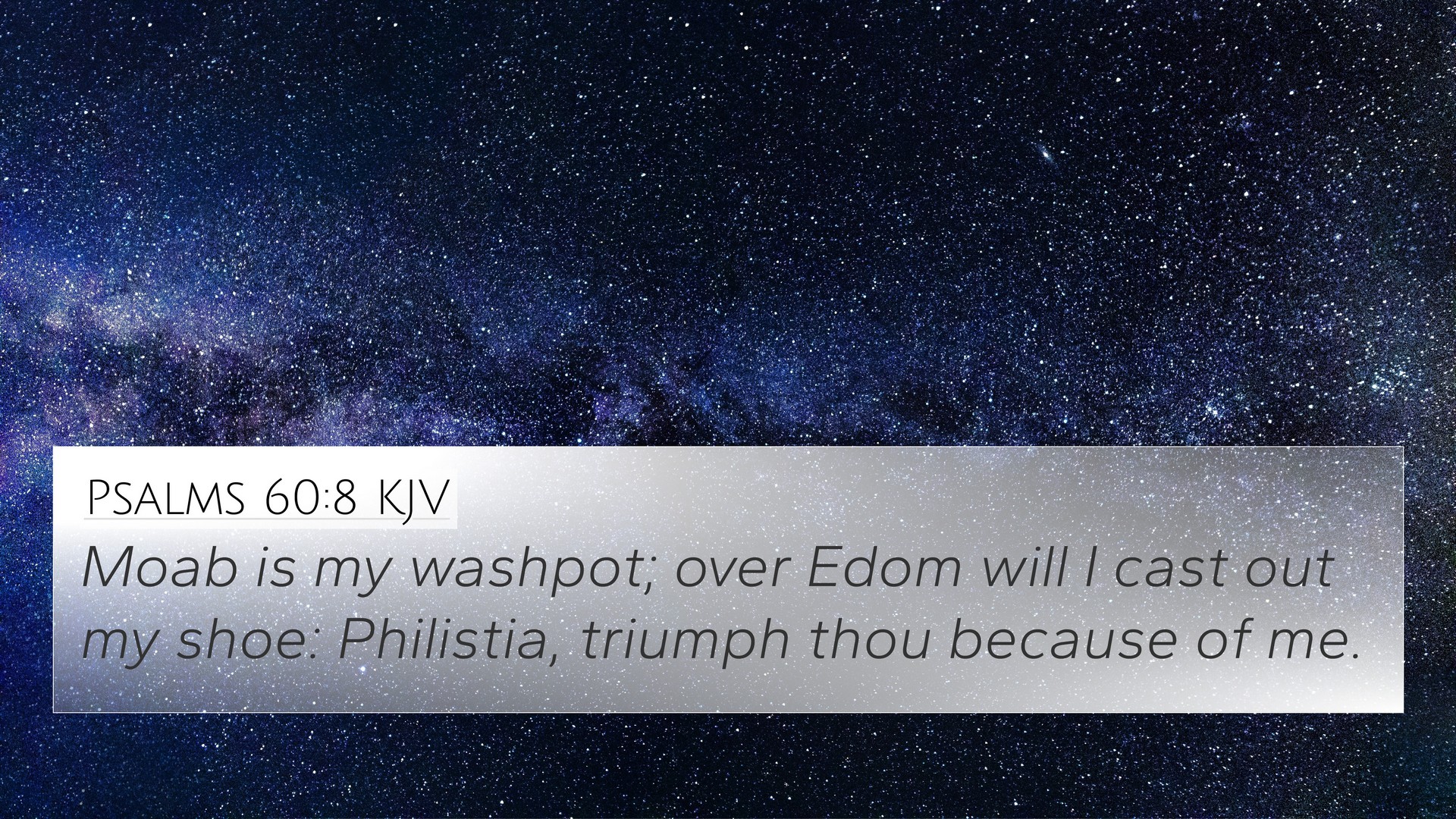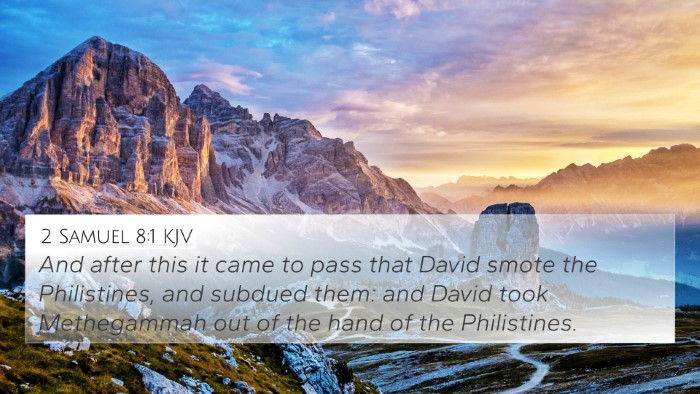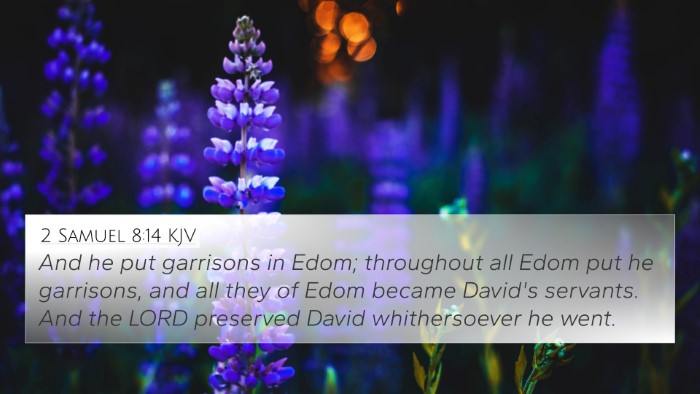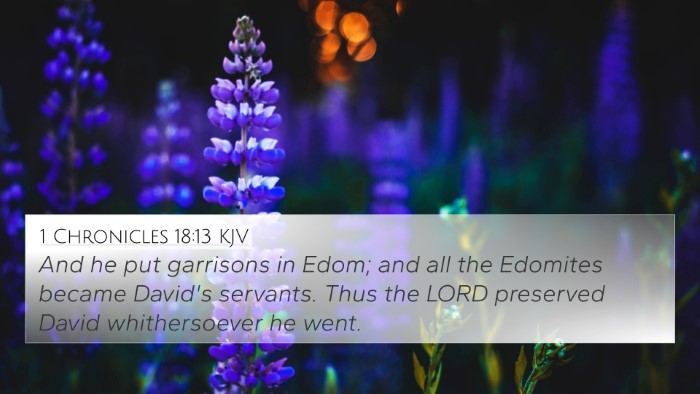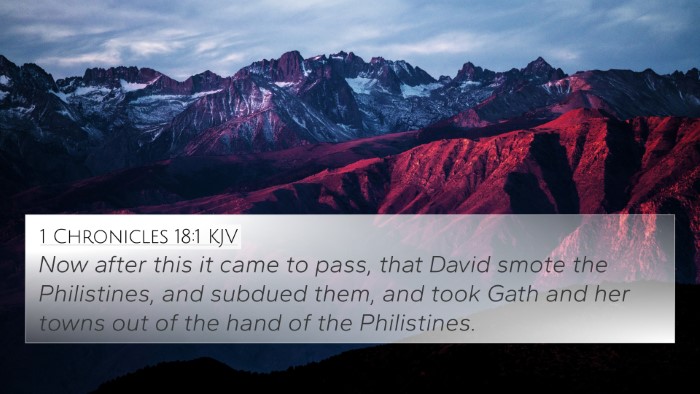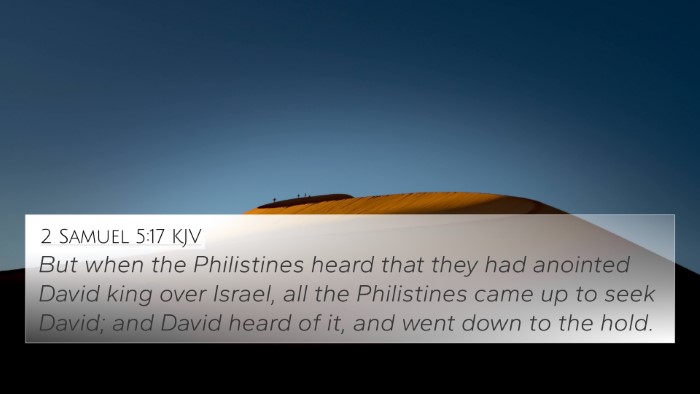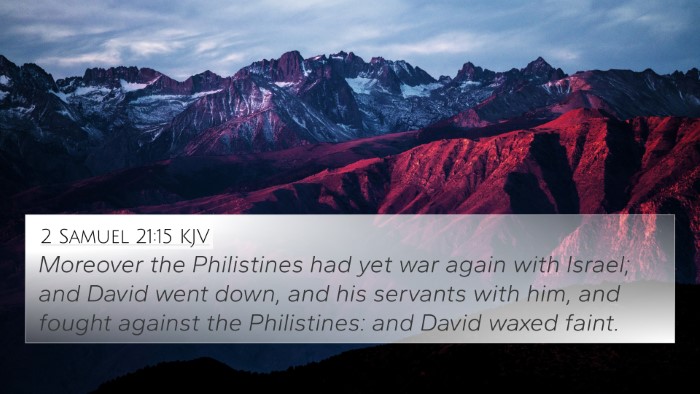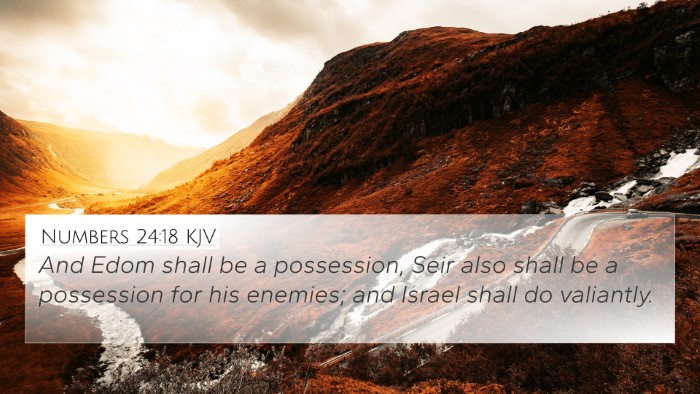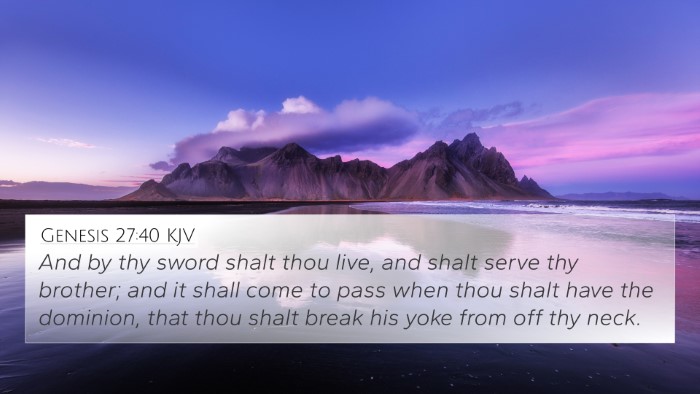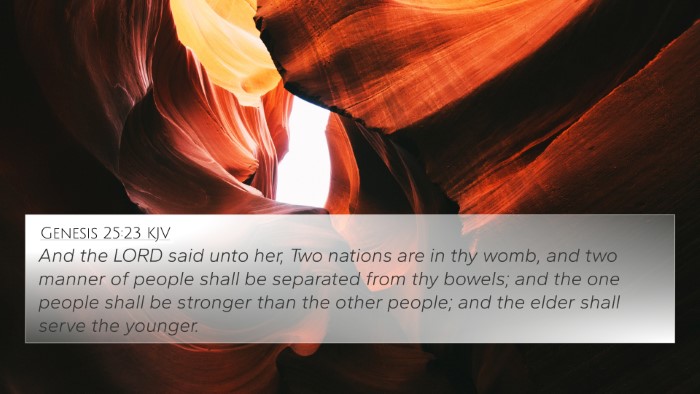Psalms 60:8 - Meaning and Interpretation
Bible Verse: Psalms 60:8 - "Moab is my washpot; over Edom will I cast out my shoe: Philistia, triumph thou because of me."
This verse is rooted in the context of a psalm that reflects the struggles and victories of Israel. It emphasizes God's sovereignty and might over their enemies. It presents a vivid imagery of God's judgment upon nations that opposed His people.
Summary of Commentary Insights
Psalms 60:8 can be interpreted as a proclamation of God's power over nations that were historically hostile to Israel. Each mention of Moab, Edom, and Philistia illustrates God’s dominance and the eventual triumph of His chosen people.
-
Matthew Henry's Commentary:
Henry highlights the metaphorical use of Moab as a washpot, suggesting that God considers their territory as insignificant or subservient. This reflects a profound spiritual truth regarding the supremacy of Israel over her foes, through divine intervention.
-
Albert Barnes' Notes:
Barnes elaborates on the phrase “over Edom will I cast out my shoe” indicating a claim of sovereignty and possession. This act of casting a shoe symbolizes taking ownership, once again showing that God supports Israel in its conquests.
-
Adam Clarke's Commentary:
Clarke draws attention to the Philistines, emphasizing that their triumph is a consequence of God's actions. The victory is not just military but also spiritual, demonstrating that God fights for those who are His.
Bible Cross References
This verse resonates with several other scriptures that reveal similar themes of God's power and the fate of enemies:
- Romans 16:20: "And the God of peace shall bruise Satan under your feet shortly." - This illustrates the ultimate victory over adversaries.
- Isaiah 63:1: "Who is this that cometh from Edom, with dyed garments from Bozrah?" - This emphasizes God’s judgment against Edom as a parallel to Psalms 60:8.
- 2 Samuel 8:2: "And he smote Moab, and measured them with a line..." - The historical context here enhances understanding of God’s sovereignty over Moab.
- 1 Chronicles 18:2: "And he smote Moab; and the Moabites became David's servants." - Reinforces the theme of subjugation of Israel’s enemies.
- Psalm 108:9: "Moab is my washpot; over Edom will I cast out my shoe; Philistia, triumph thou because of me." - A direct repetition highlighting the significance of this verse.
- Jeremiah 48:2: "There shall be no more praise of Moab; in Heshbon they have devised evil against her." - Predicts judgment upon Moab, complementing the sentiment in Psalms 60:8.
- Deuteronomy 23:3: "An Ammonite or Moabite shall not enter into the congregation of the Lord." - Shows the historical enmity between Israel and these nations.
- Isaiah 49:23: "And kings shall be thy nursing fathers, and their queens thy nursing mothers..." - Affirms that God's people will be exalted above their enemies.
- Philippians 4:13: "I can do all things through Christ which strengtheneth me." - This contemporary application assures believers of their strength in God against adversities.
- Revelation 19:11-16: "And I saw heaven opened..." - This speaks to the final triumph of Christ over all enemies, showcasing the ongoing theme of victory in God's plan.
Understanding the Thematic Connections
In examining Psalms 60:8 and its related scriptures, readers can uncover a rich tapestry of themes such as:
- God's Sovereignty: The overarching theme of divine authority over nations and individuals.
- Victory over Adversaries: The narrative consistently shows that God empowers His people to overcome opposition.
- The Use of Symbolism: The metaphors and symbols (e.g., washpot, shoe) drive home profound messages about God's relationship with His people.
- Kingship and Covenant: The promises made to Israel and how these extend into the New Testament, culminating in Christ's eternal kingdom.
Application and Reflection
For believers today, Psalms 60:8 serves as a reminder of God's continual presence and support. In personal struggles and challenges, this verse encourages:
- Trust in God's Power: Just as God intervened for Israel, believers can trust His sovereignty in their lives.
- Confidence in the Face of Adversity: Understanding that opposition can be overcome through faith.
- Awareness of Spiritual Warfare: Acknowledging that the battles believers face are often spiritual in nature.
Conclusion
Psalms 60:8 encapsulates significant theological truths about God's dominion and favor toward His people. By exploring cross-references and the contextual meanings derived from respected biblical commentators, readers gain a fuller understanding of this verse and its implications for faith.
